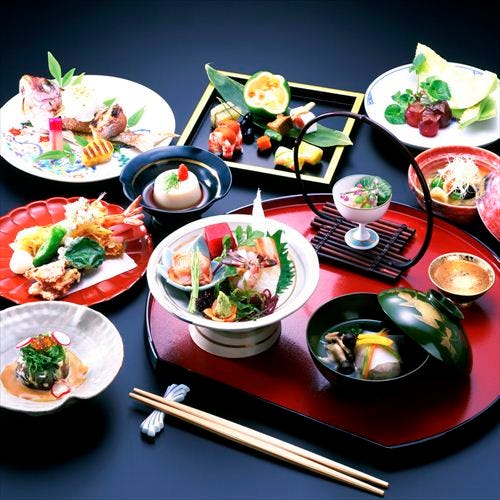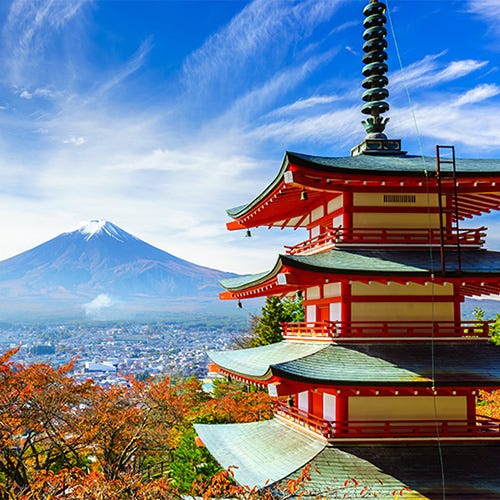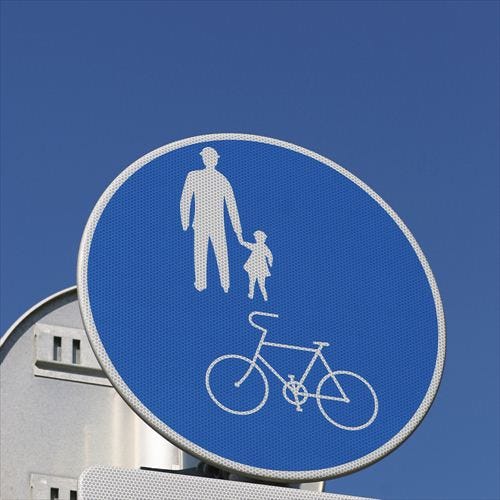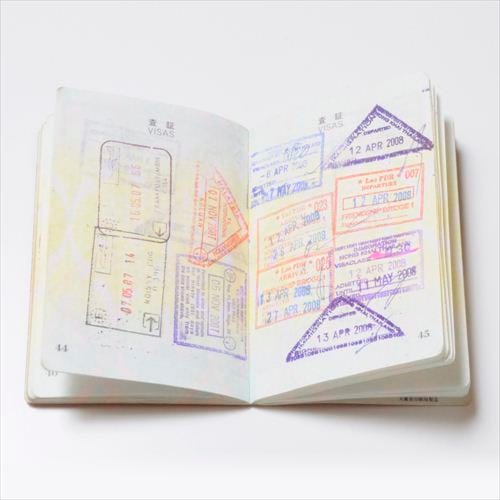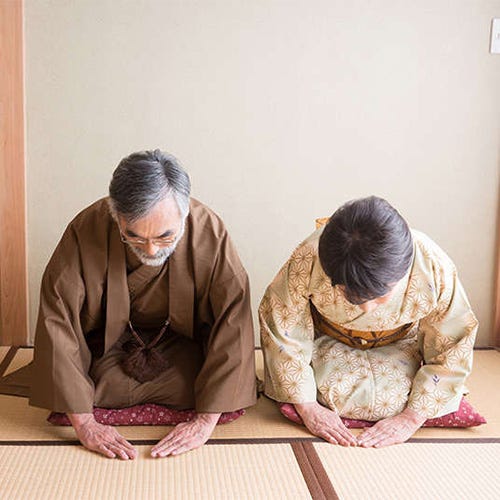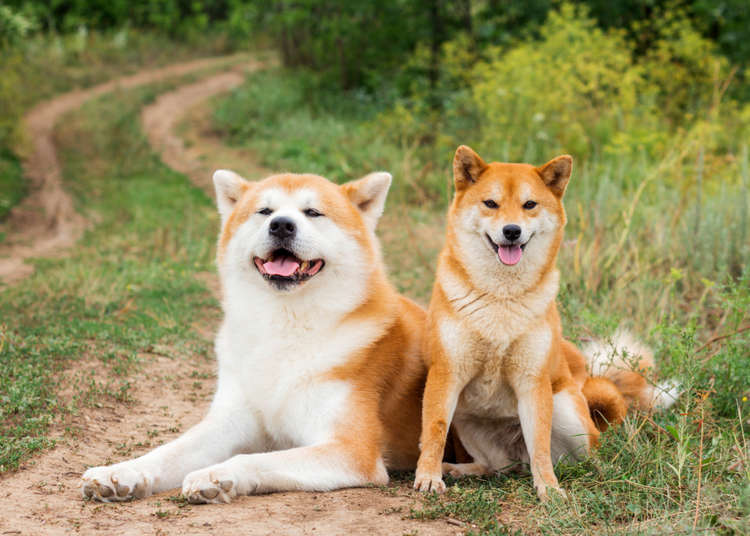
There are 6 Japanese dog breeds that are called "Nihon-ken" and are treated as Japan's national dog. The Nihon-ken include: Shiba Inu, Kishu Ken, Shikoku Ken, Hokkaido Ken, Kai Ken and Akita inu. (Akita Inu is the type of dog well-known as "Hachiko"!)
This standard was determined in 1934 by the Nihon-ken Hozonkai, a Japanese public organization that's responsible for preserving and maintaining registries for the six native Japanese dog breeds.
Here we'll share all about each of the 6 authentic Japanese dogs, plus give helpful information to people who want to have a Japanese dog as a pet - and even typical names for Japanese dogs!
- Akita Ken
- Hachiko, the adorable pup whose legacy lives on as a Japanese dog statue in Shibuya, was an Akita Inu.
- Hokkaido Inu
- Thought to have an older bloodline among the Japanese dogs, they have a thicker outer coat, larger paws, and smaller ears.
- Kai Ken
- The Kai Ken is one of the most distinctive of the original Japanese dog breeds; nicknamed the "tiger dog" from their coat colors.
- Kishu Inu
- A hunting dog that's still relatively rare even in Japan, they are intelligent, brave and independent, but also quite impulsive.
- Shiba Inu
- Arguably the most popular Japanese breed, the Shiba Inu is a Japanese national treasure.
- Shikoku Ken
- The Shikoku Ken is a beautiful Japanese spitz-type breed with a wolf-like appearance.
1. Akita Inu
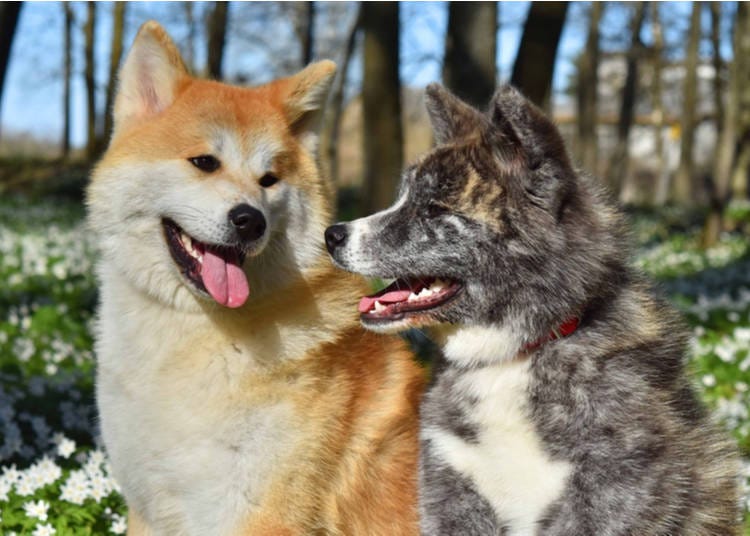
Have you heard of Hachiko - the adorable pup whose legacy lives on as a Japanese dog statue in Shibuya? Then you know about the Akita Inu.
Another well-known Japanese breed is the Akita Inu. But unlike the Shiba Inu, the Akita Inu is larger and bulkier.
You will not see many of this breed the city. Akita Inus are part of the spitz family and, therefore, have traits that are ideal for cold weather such as thick, long fur and a double coat. They have a bear-like face and large bone structure.
The Japanese Akita can be sesame, brindle, red, fawn, or pure white, but must have urajiro markings on the chest, cheeks, and tail areas.
Quick Akita Inu Facts
・Weight: 32 – 45 kilograms (about 70 – 100 pounds)
・Size: 61 – 71 centimeters tall (24 – 28 inches)
・Personality: Akita Inus are dominant dogs and are known to do poorly with other dogs of the same sex. They are, however, very good with children.
2. Hokkaido Inu
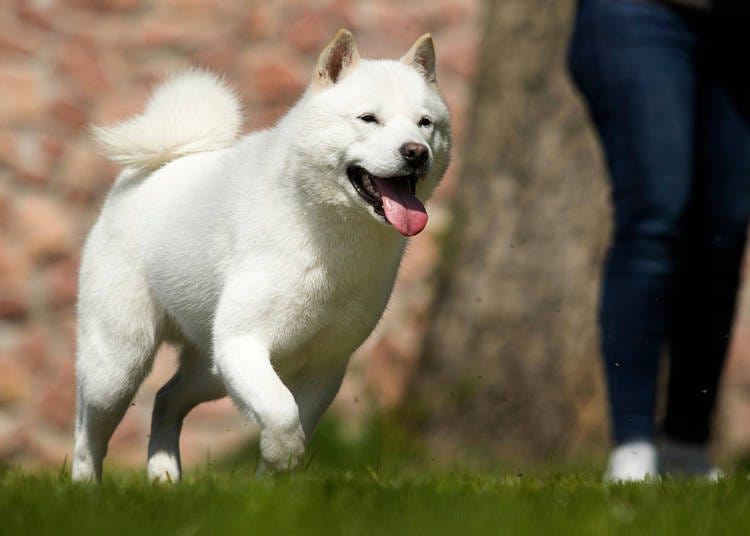
The Hokkaido Inu (or Hokkaido Ken) is believed to have an older bloodline compared to the other Japanese dog breeds. From Japan's northernmost island, the Hokkaido Inu has a thicker outer coat, larger paws, and smaller ears to help them cope with the frigid cold.
Intelligent, strong, and devoted, the Hokkaido Inu had been bred to be hunting dogs, capable of managing wild boars and even small bears. As a result, they continue to be very strong-willed breed and may show aggression toward other dogs. They tend to develop a very strong bond with their owners and require a fair amount of attention.
Quick Hokkaido Ken Facts
・Weight: ~20 kilograms (~44 pounds)
・Size: 46 – 52 centimeters high (18 – 20 inches)
・Personality: Strong, devoted, intelligent
3. Kai Ken
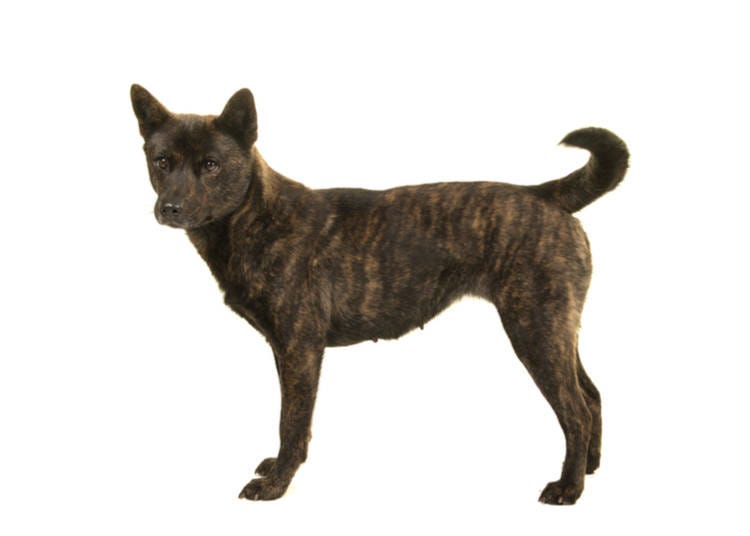
The Kai Ken is one of the most distinctive of the original Japanese dog breeds. It's easy to know why they are affectionately nicknamed the "tiger dog" from their coat colors.
The Kai Ken were bred to be hunters of wild game, including boar, deer, and fowl. As the breed originated in Japan's mountain regions, they evolved to be quick, with well developed muscles. They are also incredibly intelligent, quick learners, and tend to be fairly independent, though they love to please their owners.
Given their roots, the Kai Ken is a very active dog with an intact hunting instinct. As a result, you'll want to be sure you don't walk a Kai off-leash, as they'll likely scent out something more interesting!
Quick Kai Ken Facts
・Weight: 4 – 9 kilograms (10 – 20 pounds)
・Size: 33 – 43 centimeters high (13 – 17 inches)
・Personality: Independent, active, highly intelligent
4. Kishu Ken
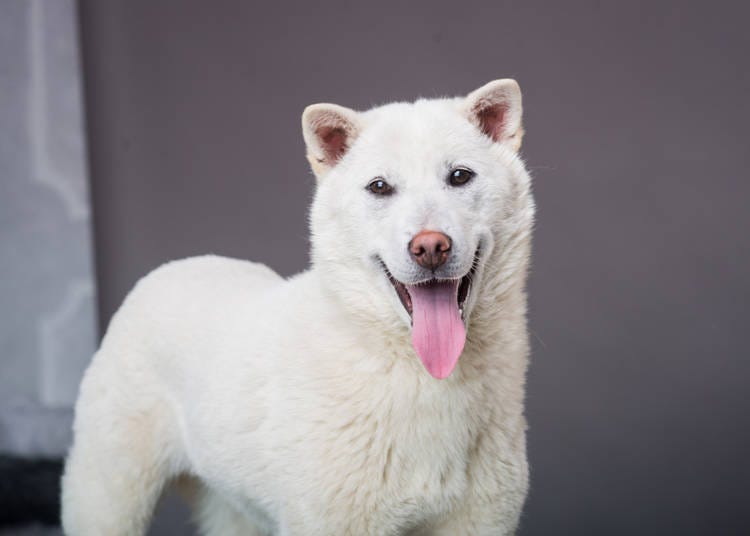
The Kishu Ken is a hunting dog that's still relatively rare even in Japan. According to one Japanese legend, the Kishu Ken actually descended from wolves.
In terms of temperament, they are intelligent, brave and independent, but also more impulsive than the other Japanese dog breeds. They have a strong natural hunting instinct and should not be left alone with other smaller pets as a result. They love being active and outdoors, but be careful: their intelligence also makes them excellent escape artists!
Quick Kishu Ken Facts
・Weight: 14 – 27 kilograms (31 – 59 pounds)
・Size: 43 – 55 centimeters high (17 – 22 inches)
・Personality: Active, brave, intelligent
5. Shiba Inu
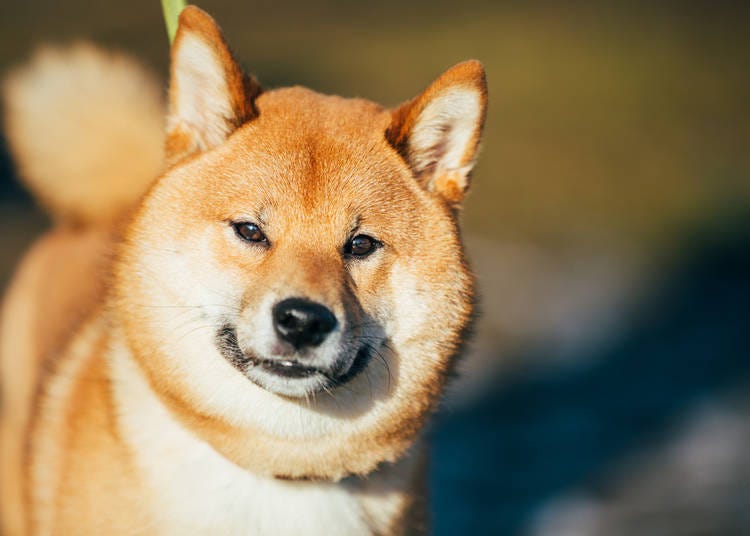
Arguably the most popular Japanese breed, the Shiba Inu is a Japanese national treasure. The Shiba is the smallest of the spitz breed of dogs in Japan.
Recently, however, smaller Shibas have been used to breed a cuter and more apartment-friendly unofficial ‘mame’ size, or bean-sized Shiba - certainly a cutie among Japanese dogs.
Shiba Inu have small pointy ears, a wedge-shaped snout, and a curled tail.
Quick Shiba Inu Facts
・Weight: 7 – 10 kilograms (around 16 to 22 pounds)
・Size: 33 – 45 centimeters high (13 to 17 inches)
・Personality: Shiba Inu are independent, territorial, and proud. They need to be socialized early.
6. Shikoku Ken

The Shikoku Ken is a beautiful Japanese spitz-type breed with a wolf-like appearance.
Like its smaller cousin, the Shiba, the Shikoku dog is a national treasure of Japan. This bread is extremely rare and is hard to find, even in Japan.
Shikoku Kens are known to be easier to handle than Shibas and Akitas as they are not as stubborn and are more friendly with other dogs.
Quick Shikoku Ken Facts
・Weight: 15 – 20 kilograms (33 – 45 pounds)
・Size: 43 –53 centimeters tall (17 – 21 inches)
・Personality: The Shikoku Ken are great companion dogs for outdoor people.
Other Japanese Dog Breeds
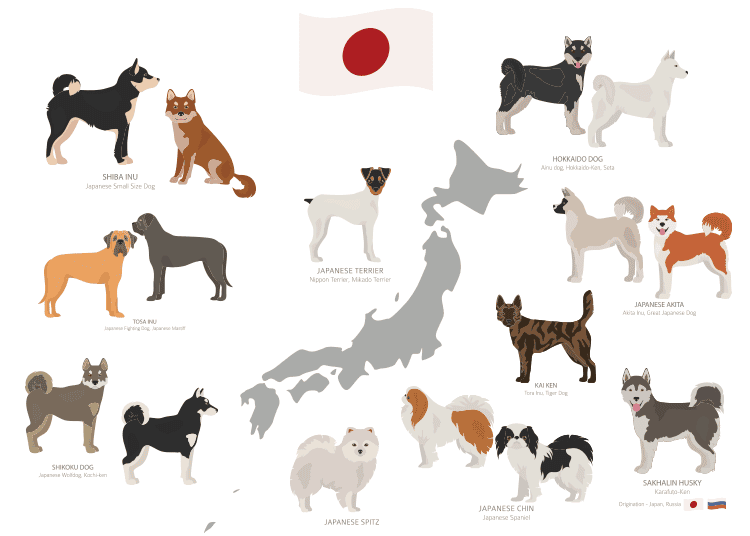
Japanese Spitz
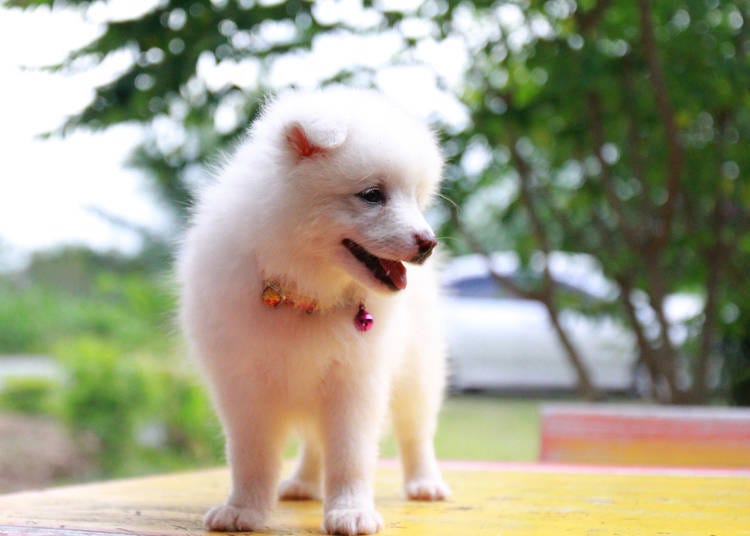
If you’re looking for a cute and cuddly companion dog, try the Japanese spitz. This small, fluffy Japanese breed makes the perfect companion dogs and was bred for city dwellers. They have close genetics to Siberian samoyeds, denoted by its thick, long coat of white fur.
Like other spitz breeds, it has a wedge-shaped snout and pointy ears. The Japanese spitz is energetic and obedient, but can bark a lot if not trained properly. This breed is very good with children and other pets.
Quick Japanese Spitz Facts
・Weight: 5 – 10 kilograms (11 – 20 pounds)
・Size: 30 – 38 centimeters high (12 – 15 inches)
Japanese Terrier
The Japanese terrier, or Nihon terrier, are another small-sized Japanese dog. They are believed to have descended from smooth-haired fox terriers from the Netherlands, pointers, and indigenous Japanese breeds.
Japanese terriers typically have a black face with a white body. They have pointed ears that fold forward, and their tails are usually docked.
They make great companion dogs for quiet households. The Japanese terrier is rare, even in Japan.
Quick Japanese Terrier Facts
・Weight: 2 – 4 kilograms (5 – 9 pounds)
・Size: 20 – 33 centimeters tall (8 – 13 inches)
・Personality: Japanese terriers are sensitive and playful.
Japanese Mastiff / Tosa Inu

The largest Japanese breed is the Japanese mastiff, or the Tosa Inu in Japanese. Unlike many of the other Japanese dog breeds, the Tosa Inu is a mastiff type and not a spitz type. The Japanese mastiff is a hunting and fighting dog.
The Japanese mastiff has short, smooth hair that is red, fawn, or brindle in color. Tosa Inus are sensitive, loyal, and quiet. They make excellent guard dogs and are good with kids.
Quick Japanese Mastiff Facts
・Weight: 31 – 61 kilograms (80 – 135 pounds)
・Height: 62 – 82 cm (24 – 32 inches)
Getting a Japanese dog

No matter what the Japanese dog breed you're thinking of getting, it's definitely harder to get one outside of Japan. For this reason, a fair number of people come to Japan with the hope of picking up a pet.
Exporting a Japanese dog from Japan comes with its own challenges. Not all breeders will want to export certain Japanese dog breeds, as they are considered 'national treasures' of a sort.
The next hurdle is cost. Prices of dogs in Japan vary, but in general, younger pups (2 months old) are cheaper than older pups.
- Shiba Inu
- 100,000 - 250,000 yen
- Akita Inu
- 100,000 - 300,000 yen
- Shikoku Ken
- 80,000 - 150,000 yen
Once you've picked out your Japanese pup, there will be additional costs with preparing to export. This will include vaccinations/microchip, dog crate, kenneling fees, export pedigree, Animal Quarantine Inspection, and other costs.
Actual shipping costs for shipping a dog from Japan will vary by country. Before buying a dog in Japan, be sure to check whether your airline ships pets! Also check the associated pet fees - it may very well be over $200.
You will have to know the import laws for your country. Many countries, in the EU for example, will require rabies vaccination and a 21-day quarantine period in Japan.
Generally, you may find it much less hassle to search for a Japanese dog breed exporter who can connect you with a breeder and take care of all the paperwork on your behalf.
Japanese Dog Names
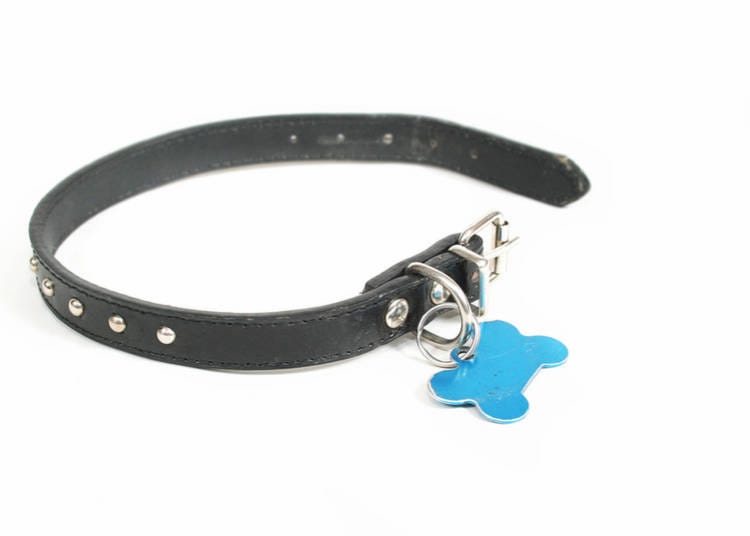
Now that you have selected your Japanese dog, naming him or can be exciting and difficult. In Japan, you can find dogs named anything from Ryuu to Lucky to Sausage. Take a look at some of these popular Japanese dog names.
- For Male Dogs
- ・Aki
・Sora
・Ryuu
・Koji
・Kuma
- For Female Dogs
- ・Momo
・Nana
・Sakura
・Hana
・Natsume
Wrap Up: Japanese Dog Breeds
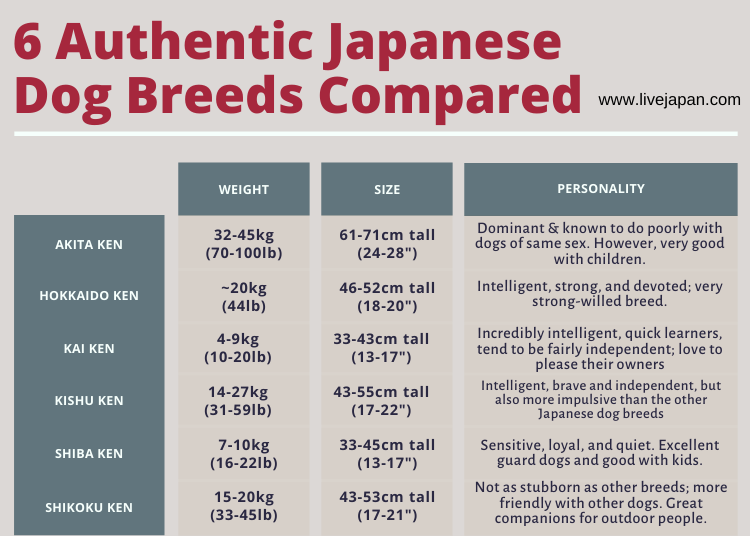
Japanese dog breeds are beautiful! These pets make for great companions. You can find Japanese breeds that are small, large, fluffy, or smooth! Next time you’re considering a new fur-baby, check out these Japanese breeds!
Related articles on dogs and Japanese dog breeds
*Prices and options mentioned are subject to change.
*Unless stated otherwise, all prices include tax.
Limited time offer: 10% discount coupons available now!
Recommended places for you
-

Jukuseiniku-to Namamottsuarera Nikubaru Italian Nikutaria Sannomiya
Izakaya
Kobe, Sannomiya, Kitano
-
Goods

Yoshida Gennojo-Roho Kyoto Buddhist Altars
Gift Shops
Nijo Castle, Kyoto Imperial Palace
-
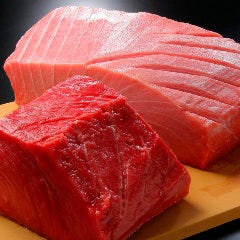
Kamesushi Sohonten
Sushi
Umeda, Osaka Station, Kitashinchi
-
Appealing

Rukku and Uohei
Izakaya
Sapporo / Chitose
-
Menu
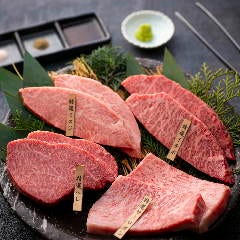
ISHIDAYA Hanare
Yakiniku
Kobe, Sannomiya, Kitano
-
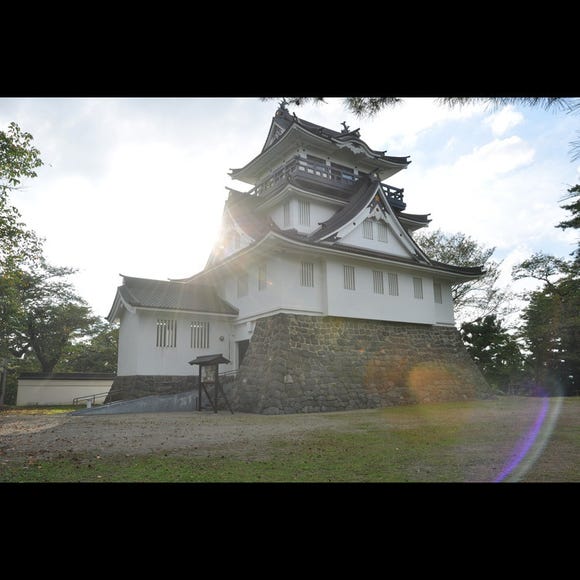
Yokote Park
Parks
Surrounding Areas Of Akita
-

Opened in Spring 2024! What to do at Tokyu Plaza Harajuku Harakado
-

Best Things to Do in Tokyo in April 2024: Events, Festivals & More
-

The CASIO S100: How CASIO's Masterpiece Calculator Redefines Business Elegance With Japan-Made Reliability
-

15 Must-Try Sushi Restaurants in Tokyo (+5 Trending Areas to Explore for Foodies)
-

15 Must-Try Restaurants in Ikebukuro: From Aged Yakiniku to All-You-Can-Eat Sushi, Plus Adorable Animal Cafés
-
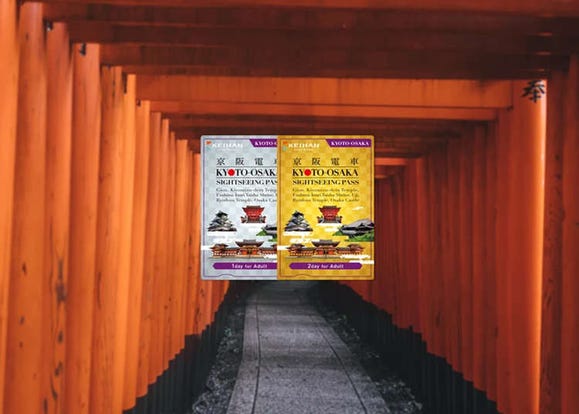
Everything You Need To Know About the Kyoto-Osaka Sightseeing Pass
-
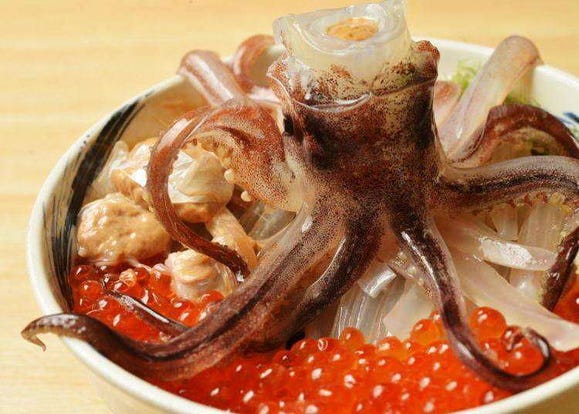
Must-Try Hakodate Restaurants! 3 Best Shops Serving Hokkaido Squid Dishes
-

Best Shibuya Ramen: 3 Noodle Shops So Delicious, You'll Want to Keep Them to Yourself!
-

Hokkaido's Renovated Cloud-Viewing 'Unkai Terrace' Brings You To The Sky's Edge, Has 'Cloud Cafe'
-

Niigata Bucket List: 26 Best Things to Do in Niigata Prefecture For Tourists (Attractions, Local Foods & Activities)
-

Easy Day Trip from Tokyo! Ultimate Sightseeing Guide for Hakone & Lake Ashinoko!
-
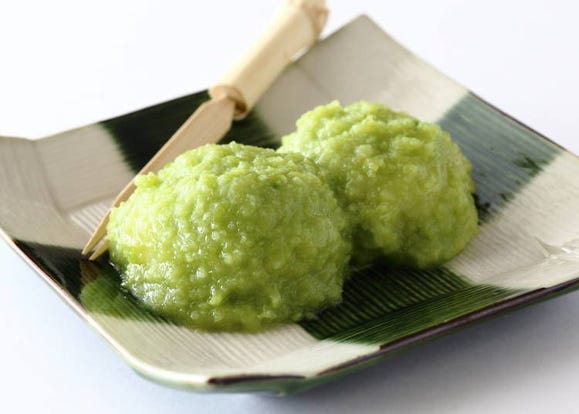
Japanese Foods List: 16 Crazy Tasty Japanese Tohoku Region Dishes You've Never Heard of
- #best sushi japan
- #what to do in odaiba
- #what to bring to japan
- #new years in tokyo
- #best ramen japan
- #what to buy in ameyoko
- #japanese nail trends
- #things to do japan
- #onsen tattoo friendly tokyo
- #daiso
- #best coffee japan
- #best japanese soft drinks
- #best yakiniku japan
- #japanese fashion culture
- #japanese convenience store snacks
